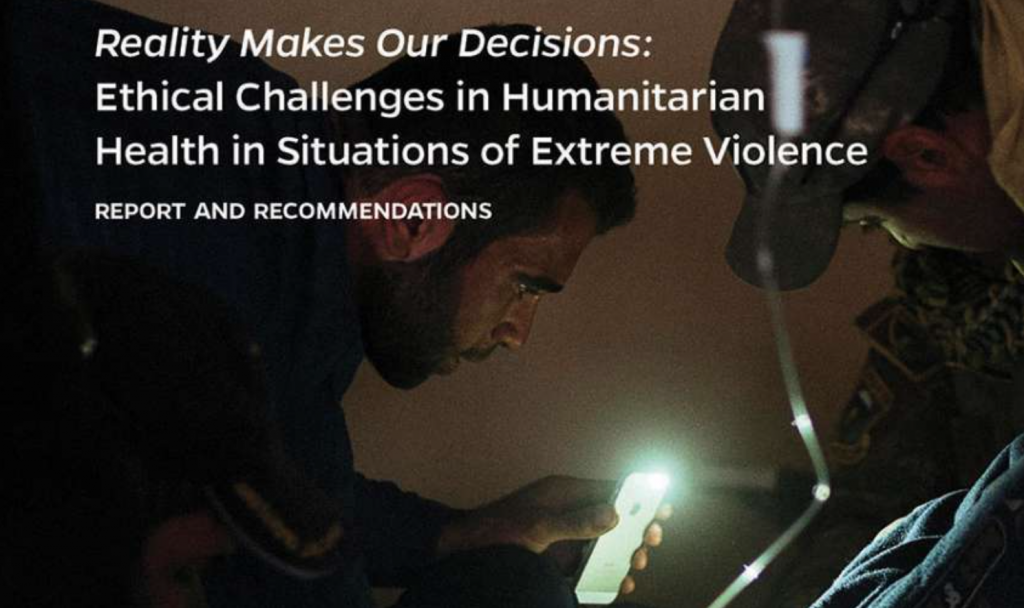Charting an Ethical Course in Conflict Zones
In violent contexts like Syria, frontline health workers face wrenching ethical decisions. When a hospital is bombed, leaders have to decide whether to move to a safer location—possibly decreasing access to care in the area. Heightening the ethical challenge, local communities may be placed at greater risk, and thus oppose the hospital’s reopening.
Berman Institute faculty member Len Rubenstein has played a leading role in the creation of a new report from the Center for Public Health and Human Rights and the Center for Humanitarian Health, along with the International Rescue Committee and the Syrian American Medical Society, that addresses some of the unique and difficult challenges humanitarian health organizations working in settings extreme violence. The report, based on almost 100 interviews with organizational managers and front-line health workers, identifies these challenges and makes recommendations to humanitarian organizations to develop processes – now rarely in place – to address the questions in a structured and systematic way.
They advise committing time, resources and regular training to address ethical issues, and creating a process to record and disseminate decisions.
